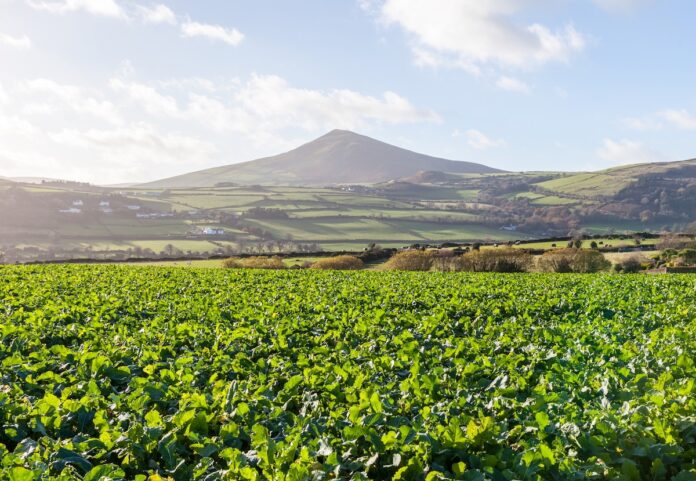"The Hidden Cost of Climate Change: How Rising Temperatures Are Impacting the Nutritional Value of Our Greens"
Climate Change Threatens Nutritional Value of Leafy Greens on the Isle of Man
Isle of Man, UK — A recent study presented at the Society for Experimental Biology’s Annual Conference in Antwerp has raised alarm bells regarding the nutritional quality of leafy greens, including spinach and kale, grown on the Isle of Man and beyond. As climate change continues to reshape agricultural landscapes, researchers are uncovering significant declines in the nutrient value of crops, a trend that could have far-reaching implications for food security and public health.
The Study’s Findings
Led by Jiata Ugwah Ekele, a doctoral student at Liverpool John Moores University, the research team conducted controlled experiments to simulate projected climate scenarios for the UK. By manipulating temperature and carbon dioxide levels, they aimed to understand how these environmental changes affect the growth and nutritional composition of leafy greens.
Ekele explained, “Our work looks beyond quantity to the quality of what we eat.” The findings indicate that while plants may grow larger under certain conditions, their nutritional content diminishes significantly. Using advanced techniques such as high-performance liquid chromatography (HPLC) and x-ray fluorescence, the team analyzed the nutrient profiles of crops grown under varying climate conditions.
Key Nutritional Declines
The study revealed that even with lower levels of warming and increased carbon dioxide, crops exhibited reduced levels of essential nutrients, including calcium and antioxidants. As temperatures and carbon dioxide levels rose further, not only did the nutritional value decline more sharply, but the plants also failed to grow larger, contradicting earlier expectations.
Interestingly, the research highlighted that different crops respond variably to these changes. For instance, while higher carbon emissions could lead to increased sugar levels in some crops, essential nutrients were found to be lacking. Ekele emphasized, “It’s not just about how much food we grow, but also what’s inside that food and how it supports long-term human wellbeing.”
Implications for Food Systems
The implications of these findings are profound. As climate change continues to escalate, the focus must shift from merely increasing food production to ensuring that the food produced is nutritionally adequate. Ekele and her team are actively seeking collaborators to further investigate these nutritional changes, aiming to inform policies that promote resilience in food systems.
“As the climate continues to change, we must think holistically about the kind of food system we’re building — one that not only produces enough food but also promotes health, equity, and resilience,” Ekele stated. “Food is more than just calories; it’s a foundation for human development and climate adaptation.”
Broader Context
This research aligns with previous studies indicating that climate change poses a significant threat to major crops worldwide, including soybeans, rice, and wheat. In the UK, another study has suggested that traditional crops like strawberries and onions may become less viable under a 2 degrees Celsius warming scenario, prompting farmers to consider alternative, non-native crops.
As the global community grapples with the multifaceted challenges posed by climate change, understanding the nutritional implications of agricultural practices will be crucial. The findings from the Isle of Man serve as a reminder that the quality of our food is just as important as its quantity, particularly in a world increasingly affected by environmental changes.
Conclusion
The ongoing research into the nutritional value of crops under climate stress is vital for shaping future agricultural policies and practices. As scientists like Ekele continue to explore these critical issues, the hope is to foster a food system that not only meets the caloric needs of the population but also supports health and resilience in the face of climate change.
For more updates on environmental issues and sustainable practices, subscribe to our daily newsletter.
